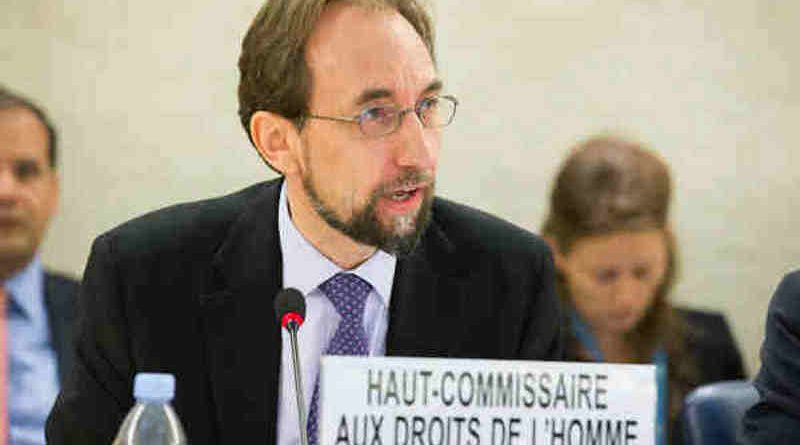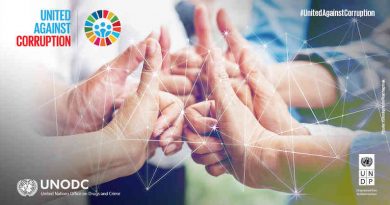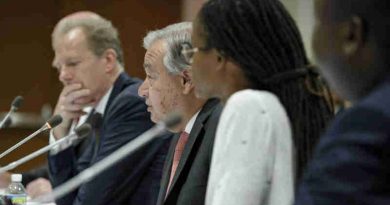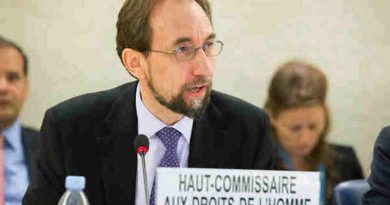UN Report Reveals Human Rights Violations in Turkey

Routine extensions of the state of emergency in Turkey have led to profound human rights violations against hundreds of thousands of people, according to a report released by the UN Human Rights Office on Tuesday.
The violations include arbitrary deprivation of the right to work and to freedom of movement, to torture and other ill-treatment, arbitrary detentions and infringements of the rights to freedom of association and expression.
The report, which covers the period between 1 January and 31 December 2017, warns that the state of emergency has facilitated the deterioration of the human rights situation and the erosion of the rule of law in Turkey, and may “have long-lasting implications on the institutional and socio-economic fabric of Turkey.”
While the UN Human Rights Office recognizes the complex challenges Turkey has faced in addressing the 15 July 2016 attempted coup and a number of terrorist attacks, the report says, “the sheer number, frequency and lack of connection of several [emergency] decrees to any national threat seem to…point to the use of emergency powers to stifle any form of criticism or dissent vis-à-vis the Government.”
The numbers are just staggering: nearly 160,000 people arrested during an 18-month state of emergency; 152,000 civil servants dismissed, many totally arbitrarily; teachers, judges and lawyers dismissed or prosecuted; journalists arrested, media outlets shut down and websites blocked.
“Clearly the successive states of emergency declared in Turkey have been used to severely and arbitrarily curtail the human rights of a very large number of people,” UN High Commissioner for Human Rights Zeid Ra’ad Al Hussein said.
“One of the most alarming findings of the report,” he added, “is how Turkish authorities reportedly detained some 100 women who were pregnant or had just given birth, mostly on the grounds that they were ‘associates’ of their husbands, who are suspected of being connected to terrorist organizations. Some were detained with their children and others violently separated from them. This is simply outrageous, utterly cruel, and surely cannot have anything whatsoever to do with making the country safer.”
The report cites the April 2017 referendum that extended the President’s executive powers into both the legislature and the judiciary as seriously problematic, resulting in interference with the work of the judiciary and curtailment of parliamentary oversight over the executive branch.
Twenty-two emergency decrees were promulgated by the end of 2017 (and two more since the cut-off date of the report), with many regulating matters unrelated to the state of emergency and used to limit various legitimate activities by civil society actors.
The decrees also foster impunity, affording immunity to administrative authorities acting within the framework of the decrees, the report notes. It contains accounts from several individuals who were dismissed from their jobs for perceived links with Gulenist networks, for using specific messaging applications or through analysis of their social media contacts.
The report also documents the use of torture and ill-treatment in custody, including severe beatings, threats of sexual assault and actual sexual assault, electric shocks and waterboarding by police, gendarmerie, military police and security forces.
Those dismissed from their jobs lost their income, social benefits, medical insurance and even their homes, as various decrees stipulate that public servants “shall be evicted from publicly owned houses or houses owned by a foundation in which they live within 15 days.”
The report also states that about 300 journalists have been arrested on the grounds that their publications contained “apologist sentiments regarding terrorism” or other “verbal act offences” or for “membership” in terrorist organisations.
Over 100,000 websites were reportedly blocked in 2017, including a high number of pro-Kurdish websites and satellite TV channels.
The report is based on information gathered and verified through interviews with 104 victims, witnesses and relatives of victims; analysis of Government information; as well as open-source documents, satellite images and audio-visual material, among other relevant and reliable materials.





